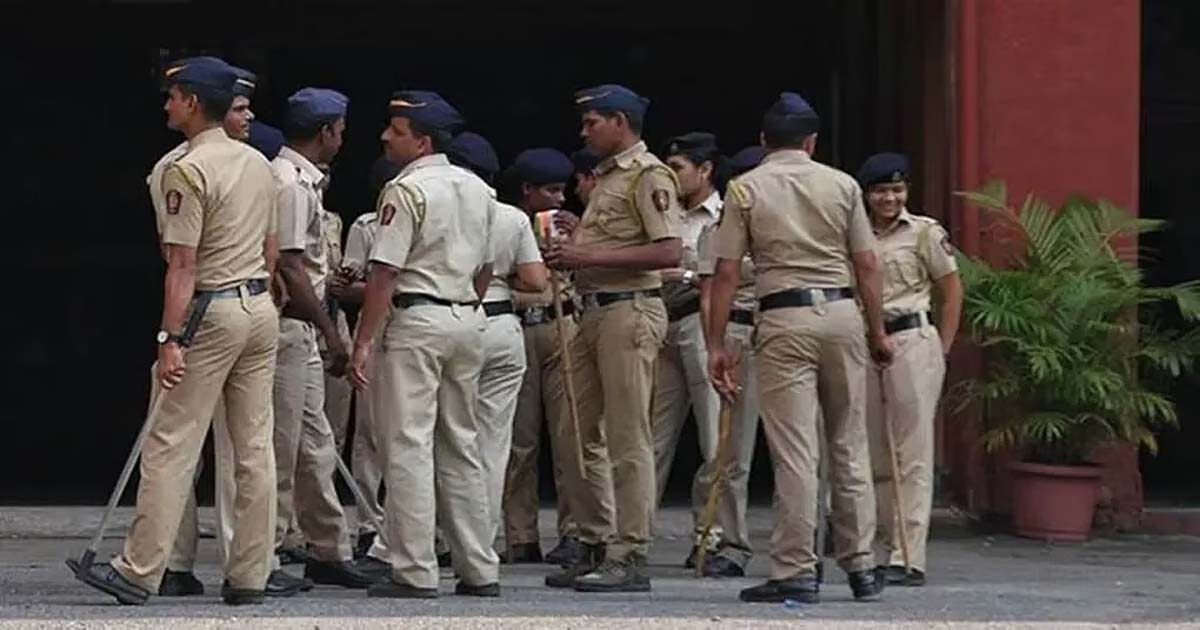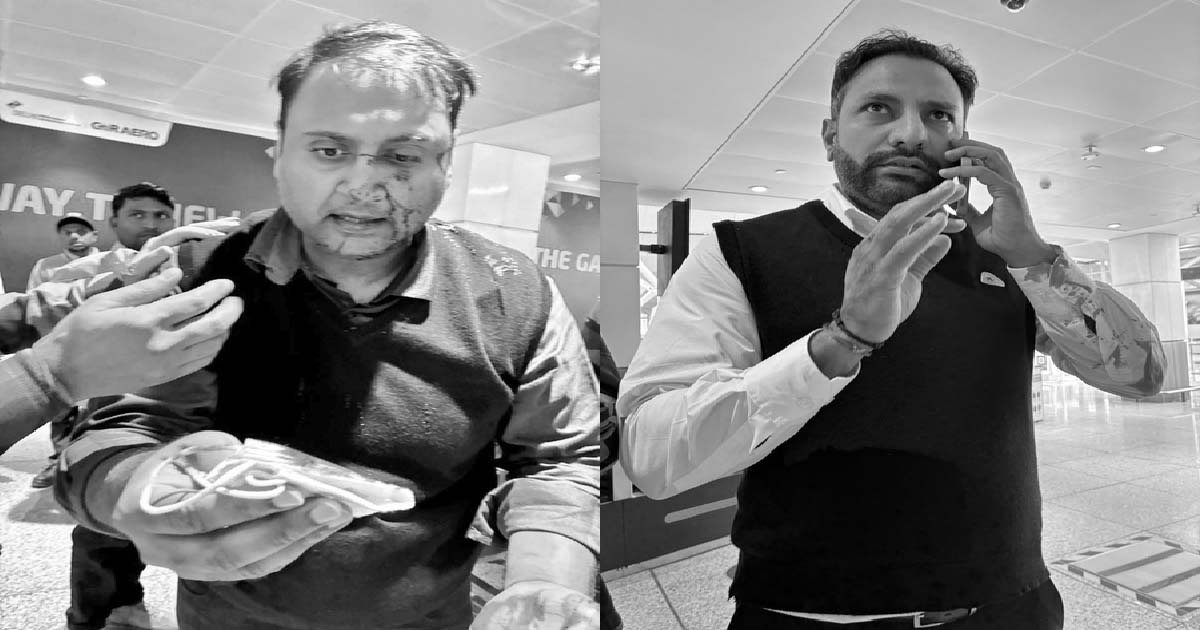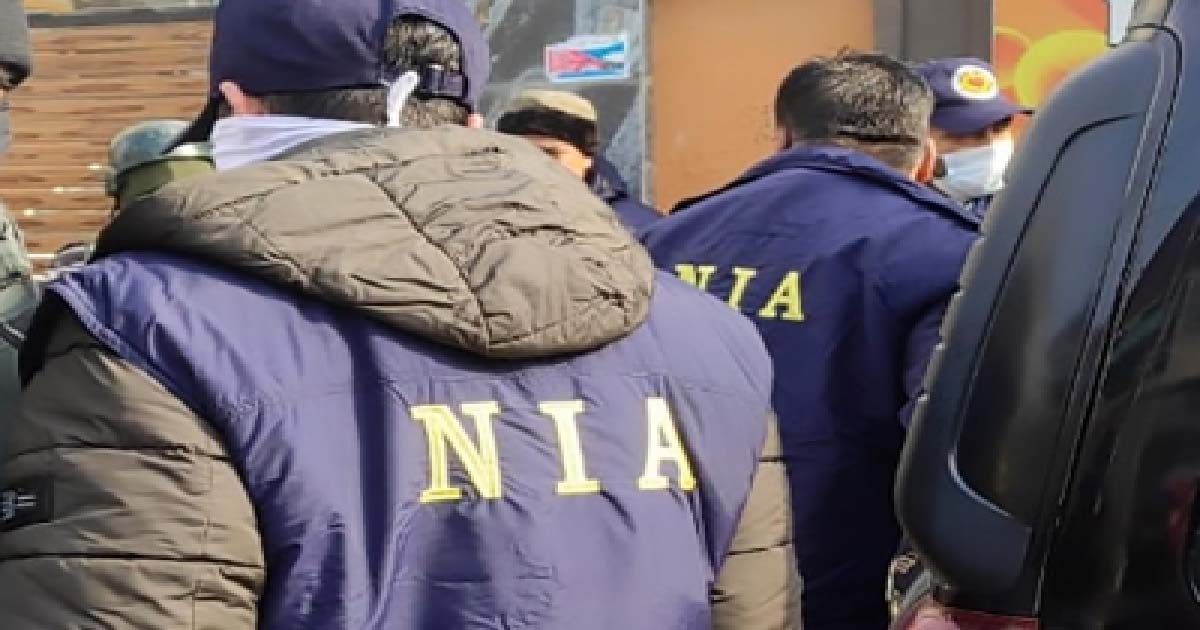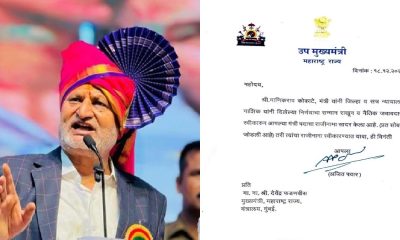Crime
Khabari: The Unsung Heroes Of Mumbai Police Intelligence

The term “Khabari” means informer, an indispensable part of every police force. While technology has transformed policing in today’s digital age, the importance of khabaris remains as strong as ever.
Some may question whether informers still hold the same relevance when advanced surveillance systems, digital forensics, and artificial intelligence are helping the police solve crimes faster. However, despite these technological breakthroughs, the role of human intelligence can never be replaced.
A khabari serves as the police’s eyes and ears on the ground. They provide crucial information about criminal activities, gangs, and suspicious movements, insights that no digital system can fully capture. Their tips often lead to major breakthroughs in investigations, especially in complex or sensitive cases where trust and human connections matter more than data. The khabaris as the backbone of crime control and investigation. From tracking drug networks to preventing gang wars, these informers quietly contribute to maintaining law and order.
There is a common phrase often seen in police press notes, “acting on a tip-off from a secret informer.” These “secret informers” are none other than khabaris. Within the Mumbai Police, there exists an entire world of informers, mysterious yet essential. The general public often forms its image of an informer from Bollywood films — a shady figure calling the police from a dark alley. In reality, the truth is far more complex and grounded.
Many khabaris come from ordinary walks of life, street vendors, rickshaw pullers, small businessmen, or paan stall owners. They share information about suspicious or criminal activity in their areas. They may not receive direct financial benefits, but being known to the police gives them credibility and a sense of security. Sometimes, it ensures that the police do not unnecessarily trouble their businesses. Some people even share information as a form of social service, though they are not considered professional informers.
However, those who provide information from within the criminal world are the true police informers. These individuals may have once been part of gangs, may have fallen out with their former associates, or may be ex-convicts trying to rebuild their lives. Some are even active criminals who maintain links with the police. In prisons, so-called ‘raw prisoners’ also serve as informants, passing on valuable details about criminal networks or planned activities. Sometimes, in certain matters, the informer is connected to politicians, businessmen, and the criminal world as well.
The identity of an informer is always kept strictly confidential for their safety. The police never reveal their names, even in successful operations or encounter reports.
Sudhakar Suradkar, a former IPS officer, stated, “Technology or machines can never replace human intelligence. In the digital era, these tools are only helpful, but ultimately, human intelligence remains the most important. For instance, the atomic tests conducted by India in 1998, during the tenure of Prime Minister Atal Bihari Vajpayee, were not detected by American intelligence agencies despite their advanced technology. Another key point is that an informer must be a credible individual. Some people accept money and provide information, but the police must identify their vested interests. Human beings can lie, which is why I never trusted petty informers; I always relied on credible ones. In the police force, the importance of informers will always remain, despite the growth of digital innovations.”
The history of informers in the Mumbai Police goes back decades. Smuggling was rampant in the 1960s, and rival operators would secretly tip off the police to catch competitors’ boats. That marked the beginning of the informer system. Over the years, informants have become an integral part of policing. During the 1980s and 1990s, when gang wars gripped Mumbai, khabaris played a crucial role. Their tips helped the police conduct encounters and dismantle underworld networks. Many of these informers risked their lives to assist the police during those violent times.
If informers provide information, what do they get in return? The answer lies in the economics of intelligence. Many informers are professionals; they earn their living by supplying credible information. The bigger and more valuable the information, the greater the reward. Some informers are even said to be on the police’s ‘payroll.’
In addition to monetary rewards, police departments often extend quiet support to informers and their families. If an informer is imprisoned or injured, officers may help their family financially. Such payments are made through a ‘secret fund’, an officially sanctioned fund used specifically to compensate informers for their services.
While technology has made policing faster and more scientific, the khabari continues to bridge the gap between street-level reality and official intelligence. Behind every major breakthrough lies a whisper from an unseen source, a khabari who risks everything to keep the city safe.
Street / Criminal Circle → Khabari → Police Officer → Action / Raid / Arrest
Former gang members
Street vendors / small business owners
Ex-convicts or prison contacts
Active criminals turned informants
Others (auto drivers, bar employees, etc.)
Police maintain a “secret fund” to pay informers.
The amount depends on the value of the information.
Payments are kept confidential to protect identities.
1960s: Start of informer culture during smuggling era
1980s–1990s: Rise of gang wars — informers vital in encounters
2000s: Informers track drug trade and organised crime
2020s: Digital policing + human intelligence = stronger results
Crime
SpiceJet passenger alleges assault by Air India Express pilot at Delhi airport

New Delhi, Dec 20: A SpiceJet passenger has accused an Air India Express pilot of assaulting him following a dispute over allegedly cutting the boarding queue at Indira Gandhi International Airport’s Terminal 1 in an incident that has triggered widespread attention on social media.
The passenger, Ankit Dewan, took to X, sharing a photograph showing blood on his face.
He claimed that the incident unfolded in front of his seven-year-old daughter, who, he said, has been deeply traumatised after witnessing the attack.
Tagging the Delhi Police on social media, Dewan questioned why he could not register a complaint after returning from his trip.
“Why can’t I file a complaint after coming back? Must I sacrifice my money too, to seek justice? Will the CCTV footage disappear in the next two days till I make it back to Delhi?” he asked.
The Delhi Police, however, claimed that no formal complaint had been received in connection with the incident.
“The matter has come to the knowledge of the police through a social media post. Whenever a written complaint is received by the victim in this regard, appropriate legal action will be taken,” the police said.
Dewan also alleged that he was forced to write a letter stating that he would not pursue the matter further.
“… It was either write that letter, or miss my flight and throw the Rs 1.2 lakh holiday bookings down the drain,” he said.
Dewan stated that the incident occurred while he was travelling with his family.
According to Dewan, airport staff directed him, his wife, and their children, including a four-month-old infant in a stroller, to use a security check-in lane typically meant for staff members to ease their movement through the terminal.
However, he alleged that while they were in the queue, some staff members began moving ahead of him.
“The staff was cutting the queue ahead of me. On calling them out, Capt. Virender, who himself was doing the same thing, asked me if I was anpadh (uneducated), and couldn’t read the signs that said this entry was for staff,” he said, adding that the exchange soon turned into a heated verbal argument.
“Not able to exercise restraint, the AIX (Air India Express) pilot proceeded to physically assault me, leaving me bloody. The blood in the photograph on his shirt is also mine,” Dewan said in another post on X, where he identified the pilot involved.
Air India Express issued a statement condemning the incident and said it does not tolerate such conduct.
“The employee concerned has been removed from official duties with immediate effect, pending investigation. Appropriate disciplinary action will be initiated based on the findings of the inquiry,” the airline said.
The airline clarified that the individual was travelling as a passenger on another airline at the time of the incident and was not on official duty.
“Air India Express upholds the highest standards of conduct and professionalism, and remains committed to ensuring that its employees act responsibly at all times,” it added in the statement.
Crime
NIA arrests two more absconders in Dinesh Pusu Gawade murder case in Maharashtra

New Delhi, Dec 20: The National Investigation Agency (NIA) has arrested two more absconding accused in connection with the abduction and brutal murder of Dinesh Pusu Gawade in Maharashtra’s Gadchiroli district.
The wanted accused, both members of the banned CPI (Maoist) terrorist organisation, have been identified as Raghu alias Pratap alias Irpa alias Muddella alias Sailu, a resident of Nizamabad district in Telangana, and Shankar Mahaka, a native of Gadchiroli district in Maharashtra, respectively.
Gawade, a resident of Laheri village in Bhamragarh taluka of Gadchiroli, was abducted and murdered in November 2023 by CPI (Maoist) cadres on suspicion of being a police informer and having links with the RSS. He had gone to Pengunda village to participate in a sports competition, where he was kidnapped and murdered by the ultras.
According to the investigation, Gawade was killed with a sharp weapon. A note was left at the crime scene by the assailants, accusing the victim of being a police informer. The assailants’ motive behind the killing was spreading terror among local villagers and intimidating them against sharing any information about Maoist activities and movements with security forces.
The NIA had taken over the probe from the Gadchiroli Police in October 2024.
Earlier, the agency had chargesheeted four accused — Doba Wadde, Ravi Pallo, Sattu Mahaka, and Komati Mahaka — over their involvement in the ghastly crime. The charge sheet was filed in January this year – against four CPI (Maoist) members of the CPI (Maoist) for the abduction and murder of Gawade under various provisions of the IPC and the Unlawful Activities (Prevention) Act.
Investigation is currently underway and the probe agency has stepped up efforts to unearth the entire conspiracy behind the gruesome murder of Dinesh Pusu Gawade.
Crime
Mumbai Crime: 180 Job Aspirants Cheated In Fake Overseas Employment Scam; 4 Arrested, Passports Recovered

Mumbai: The Samta Nagar police have registered an FIR against eight persons, and arrested four of them, for allegedly cheating around 180 people by promising them jobs abroad. Two of the arrested persons are women. One of the arrested accused was found in possession of the victims’ passports. Following intervention by MP Piyush Goyal, timely action was taken, resulting in the recovery and return of all the passports to the victims. Most of the victims are from Uttar Pradesh, Bihar, Rajasthan, and Delhi.
The accused were running a fake company named ‘Star Man Power’ from Office No 230, Dimple Arcade, Thakur Complex, Kandivali East. The accused have been identified as Devraj Yadav, Ashish Kumar, Verma (first name unknown), Ajan, Ayesha Ansari, Pooja Yadav, Ranjna Kamat, and Kajal Gupta. According to the police, the accused posted advertisements on social media platforms, claiming vacancies for drivers, helpers, fitters, and packing workers in foreign countries.
The accused allegedly demanded Rs 30,000 to Rs 2.5 lakh, depending on the job profile. The accused also conducted fake medical tests, issued fake visas and flight tickets, and retained nearly 180 passports. Payments were collected both in cash and through online transfers into multiple bank accounts. The complainant, Mahesh Chauhan, 25, stated that he visited the office of the accused in November, where his passport was taken, and he was assured a job in Russia.
He was asked to pay Rs 75,000 and initially paid Rs35,000. On November 11, when he visited the office to collect his passport and flight ticket, the office was closed. After waiting for several hours, he noticed more than 100 people gathered outside the office. Soon, they realised that everyone had come to collect their passports and tickets. Some victims had even been given fake visas and flight tickets. When the victims attempted to contact the main accused, Devraj Yadav, they found his mobile phone switched off.
The phones of the other accused were also unreachable. The victims then approached the police and filed a complaint. Based on this, the police registered a case on December 3 under Sections 318(4) (cheating), 316(2) (criminal breach of trust), and 61(2) (criminal conspiracy) of the Bharatiya Nyaya Sanhita. The victims alleged that while the police registered the case promptly, action took time. Subsequently, they approached the BJP office in Kandivali West and also contacted the Ministry of Commerce and Industry.
Reacting to the incident, MP and Union minister Piyush Goyal stated, “Safeguarding the interests, dignity and future of India’s youth remains a key priority of the government led by Prime Minister Narendra Modi. Any individual or racket that exploits the dreams of young citizens will face strict and prompt action.” He added that in this case, swift police action, recovery of passports and relief to the affected victims is a matter of satisfaction.
-

 Crime3 years ago
Crime3 years agoClass 10 student jumps to death in Jaipur
-

 Maharashtra1 year ago
Maharashtra1 year agoMumbai Local Train Update: Central Railway’s New Timetable Comes Into Effect; Check Full List Of Revised Timings & Stations
-

 Maharashtra1 year ago
Maharashtra1 year agoMumbai To Go Toll-Free Tonight! Maharashtra Govt Announces Complete Toll Waiver For Light Motor Vehicles At All 5 Entry Points Of City
-

 Maharashtra1 year ago
Maharashtra1 year agoFalse photo of Imtiaz Jaleel’s rally, exposing the fooling conspiracy
-

 National News1 year ago
National News1 year agoMinistry of Railways rolls out Special Drive 4.0 with focus on digitisation, cleanliness, inclusiveness and grievance redressal
-

 Maharashtra1 year ago
Maharashtra1 year agoMaharashtra Elections 2024: Mumbai Metro & BEST Services Extended Till Midnight On Voting Day
-

 National News1 year ago
National News1 year agoJ&K: 4 Jawans Killed, 28 Injured After Bus Carrying BSF Personnel For Poll Duty Falls Into Gorge In Budgam; Terrifying Visuals Surface
-

 Crime1 year ago
Crime1 year agoBaba Siddique Murder: Mumbai Police Unable To Get Lawrence Bishnoi Custody Due To Home Ministry Order, Says Report





















